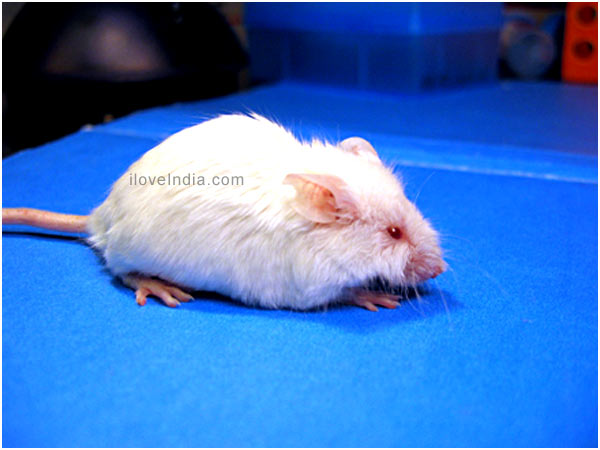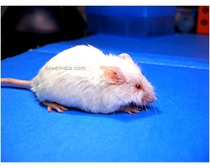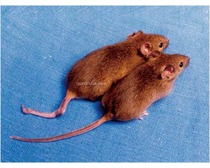Did you know that a mouse is exceptionally clean and tidy? To get some more interesting and amazing facts about mice, read through the info given in the article.
Facts About Mice
What’s your favorite cartoon? Ask anyone and you would surely be bombarded with the answers - Tom & Jerry or Mickey Mouse!! While we all love to watch Jerry or Mickey Mouse on the idiot box, watching one, live at home, can be too far from being fun. If your house has been arrested with these little devils, its time you should know some of the facts associated with a mouse. A mouse, plural being mice, is a small animal belonging to the order of rodents. While there are as many as 30 species of the animal, the house mouse or Mus musculus is the most popular one. Mice and rats have lived with humans since time immemorial and are known to be some of the most common pests. Sure, wanting to get rid of them the ‘Pied-Piper’ way, may seem like an intriguing idea, but is surely not the way. Before you get irked and decide to change the page, it won’t hurt to know a little about these queer yet cute (for some!) creatures. To know some more interesting and amazing information about mice, browse through the following lines.

Fast Facts
Kingdom: Animalia
Phylum: Chordata
Class: Mammalia
Order: Rodentia
Superfamily: Muroidea
Family: Muridae
Subfamily: Murinae
Genus: Mus
Species: 30
Length: Varies from 3-15 centimeters.
Weight: 20 to 25 grams
Average Lifespan: 1 to 2 years
Diet: Anything
Habitat: In field, nest or burrow. They also live in homes and other buildings.
Age of Maturity (Males): 50 days,
Age of Maturity (Females): 50 days
Gestation Period: 18 to 21 days
Number of Offspring: 3 to 12
Status: Endangered
Interesting & Amazing Information On Mice
-
The name ‘mouse’ comes from a Sanskrit word ‘mus’, which means thief.
-
While male mice are known as buck, female mice are called doe. Baby mice are known as pinky or kitten.
-
Mice are constant eaters and would eat anything they get hold of. However, hard bread is the most favorite food item, contrary to the popular myth of ‘cheese’.
-
Mice have tails that are as long as their bodies.
-
Every year, mice cause more than one billion dollar damage in the US alone.
-
Mice are highly curious and explore their territory daily, paying special attention to new objects or physical changes.
-
They are prolific breeders, producing six to ten litters continuously throughout the year.
-
Mice kitten are born hairless and are usually pink in color, and hence the term ‘pinky’.
-
Mice do not vomit.
-
Mice usually have a poor vision, which is why their activity is constrained to smell, taste, touch and hearing.
-
The mice were responsible for killing millions of people throughout Europe, more than 5 centuries ago, with a disease known as the bubonic plague.
-
They have long sensitive whiskers near the nose and hair on the body. For traveling, they use this tactile sensor to pass through the dark.
-
Mice have a great sense of balance, which allows them to walk along telephone wires, ropes and similar thin objects.
-
They have excellent jumping capacity and can jump at least 12 inches vertically.
-
Mice can run up almost any vertical surface; wood, brick, weathered sheet metal, cables, etc.
-
Mice nest mostly inside walls or burrows, which is how the idea for creating Jerry and his little nest in the wall, came about.
-
Mice are good jumpers, swimmers and climbers.
-
The average lifespan for a mouse is 1-2 years. They can start to have babies as early as 6-8 weeks of their birth and give birth to 5-10 pinky’s or kittens in as much as 3 weeks after conception.
-
Mice are carriers of human-biting fleas/mites, which is why they are unsafe to have around as pets.
-
Deer mice get their name because they have fur that resembles that of deers.
-
Mice love to eat 15-20 times a day and tend to build their homes/nests close to a accessible food source.
-
They can transmit salmonellosis (bacterial food poisoning), when food is contaminated with infected mouse feces. In addition to spreading bacterial food poisoning, mice can also cause allergy and asthma attacks much like dust mites and cockroaches.


See also
More from iloveindia.com
- Home Remedies | Ayurveda | Vastu | Yoga | Feng Shui | Tattoos | Fitness | Garden | Nutrition | Parenting | Bikes | Cars | Baby Care | Indian Weddings | Festivals | Party ideas | Horoscope 2015 | Pets | Finance | Figures of Speech | Hotels in India : Delhi | Hyderabad | Chennai | Mumbai | Kolkata | Bangalore | Ahmedabad | Jaipur
- Contact Us Careers Disclaimer Privacy Policy Advertise With Us Lifestyle Sitemap Copyright iloveindia.com. All Rights Reserved.



